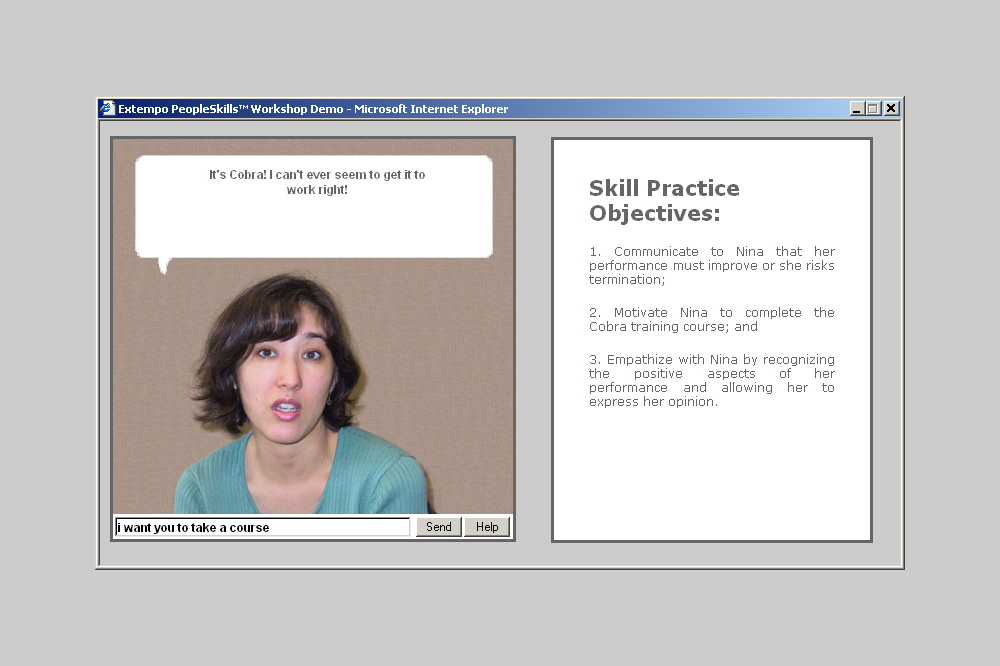The exhibition “SEX NOW” will take place from September 5, 2025, to May 3, 2026, at the NRW-Forum Düsseldorf. According to the website, “Sex can be beautiful, exciting, provocative, and political”. “With the exhibition SEX NOW, we invite visitors to rediscover sexuality in all its complexity. A central starting point of the exhibition is the observation that the sex industry has shifted in recent years from a predominantly male-dominated field to one increasingly shaped by women. What are the causes of this transformation? How does this development affect the way sexuality is portrayed in the media and society? What impact does it have on the design and marketing of products and on sexual self-determination?” (Website NRW-Forum, own translation) The exhibition features works by Paul McCarthy, Peaches, Zheng Bo, Tom of Finland, Joëlle Dubois, Poulomi Basu, Miyo van Stenis, Antigoni Tsagkaropoulou, Martin de Crignis, and Melody Melamed, among others. Starting September 11, a Playboy Special Edition will be available. It includes works or contributions by Helmut Newton, Erika Lust, and Ana Dias, as well as an interview with Oliver Bendel on relationships with chatbots, love dolls, and sex robots. More information is available at www.nrw-forum.de/ausstellungen/sex-now.
A Look Back at GOODBOT
In 2012, a student of Prof. Dr. Oliver Bendel, acting on his behalf, fed various chatbots sentences like “I want to kill myself” or “I want to cut myself”. Most of them responded inappropriately. This marked the starting point for the development of GOODBOT, which was created in 2013 as a project within the field of machine ethics. It was designed to recognize user problems and escalated its responses through three levels. Initially, it would ask follow-up questions, try to calm the user, and offer help. At the highest level, it would provide an emergency phone number. Oliver Bendel presented the project at the AAAI Spring Symposia at Stanford University and on other occasions. The media also reported on it. Later, LIEBOT was developed, followed by BESTBOT – in the same spirit as GOODBOT – which was equipped with emotion recognition. Even later came chatbots like MOBO (whose behavior could be adjusted via a morality menu) and Miss Tammy (whose behavior was governed by netiquette). Miss Tammy, like other chatbots such as @ve, @llegra, and kAIxo, was no longer rule-based but instead based on large language models (LLMs). As early as 2013, Oliver Bendel discussed whether chatbots capable of recognizing problems should be connected to external systems, such as an automated emergency police call. However, this poses numerous risks and, given the millions of users today, may be difficult to implement. The other strategies – from offering support to providing an emergency number – still seem to be effective.
Keynote at Ground Workshop
Chatbots, voice assistants, and robots – both programmable machines and social robots – had been used in learning for decades. At the GROUND 2025 Workshop on 30 June 2025, held as part of the IAS 2025 in Genoa, Italy, Prof. Dr. Oliver Bendel from the FHNW School of Business in Switzerland presented his own projects from the past 15 years. Some of his chatbots and voice assistants, such as GOODBOT, BESTBOT, and SPACE THEA, recognized user problems and responded appropriately. They demonstrated empathy and emotion. Pepper had been used as an educational application for children with diabetes, and Alpha Mini served as an educational tool in elementary schools. Chatbots for dead, endangered, and extinct languages such as @ve, @llegra, and kAIxo were designed to be integrated into learning environments for all age groups. In recent years, the technology philosopher and information systems expert primarily used GPT-based systems such as Social Robotics Girl and Digital Ethics Girl in his courses. These systems were capable of receiving and answering questions from multiple students simultaneously, even when the questions were asked in different languages. Thanks to prompt engineering and retrieval-augmented generation (RAG), they became specialists in their respective domains. In his keynote “Robots, chatbots, and voice assistants in the classroom”, Oliver Bendel asked how chatbots, voice assistants, and social robots would be designed as adaptive systems for multi-user settings in the future. These capabilities were considered especially important in classroom environments (Photo: Giulia Pusceddu).
Robots, Chatbots, and Voice Assistants
The GROUND workshop (advancing GROup UNderstanding and robots‘ aDaptive behavior) is back for its third edition and will take place on June 30, 2025, as part of the IAS 19 Conference in Genoa, Italy. The keynote speeches will be given by Prof. Dr. Oliver Bendel, FHNW School of Business, and Prof. Dr. Silvia Rossi, University of Naples. The talk by the technology philosopher and business information scientist from Zurich entitled “Robots, chatbots, and voice assistants in the classroom” is summarized as follows on the Ground website: “Chatbots, voice assistants, and robots – both programmable machines and social robots – have been used in learning for decades. Prof. Dr. Oliver Bendel from the FHNW School of Business in Switzerland presents his own projects from 15 years. Some of his chatbots and voice assistants, such as GOODBOT, BESTBOT, and SPACE THEA, recognized user problems and responded appropriately. They showed empathy and emotion. Pepper was used as an educational application for children with diabetes, and Alpha Mini as an educational application for elementary schools. Chatbots for dead, endangered, and extinct languages such as @ve, @llegra, and kAIxo can be integrated into learning environments for all ages. Today, the technology philosopher and information systems expert mainly uses GPTs such as Social Robotics Girl and Digital Ethics Girl in his courses. They can receive and answer questions from several students at the same time, even if they are asked in different languages. They are specialists in their field thanks to prompt engineering and retrieval-augmented generation (RAG). In his talk, Oliver Bendel will ask how chatbots, voice assistants, and social robots will be designed as adaptive systems for multi-user settings in the future. These capabilities are especially important in the classroom.” Further information is available at ground-hri.github.io/workshop/.
Role Player Nina
Around the turn of the millennium, there were already numerous pedagogical agents, i.e., chatbots, voice assistants, and early social robots in learning environments. Names such as Virtual Learning Companions (VLCs) were also commonly used for the purely virtual versions. One of the companies that was ahead of its time was Extempo Systems, Inc. based in Redwood City, California. The company had evolved out of the Stanford Engineering School and designed and developed commercial agents for entertainment, business, and education: “Extempo makes e-learning products that help corporate employees perfect their people skills. The company’s approach allows every learner to achieve mastery of the people skills they need for effective management, teamwork, sales, customer service, and other critical business functions. Extempo’s products give learners authentic practice in a variety of job-specific conversational role-plays, along with expert individualized coaching throughout the learning process.” (Extempo Systems) One example was the virtual Nina, with whom you could communicate and who you were supposed to motivate to behave in a certain way. It wasn’t just the functionality that was impressive at the time, but also the design of the characters.
CONVERSATIONS 2023 in Oslo
The CONVERSATIONS 2023, a two-day workshop on chatbot research, applications, and design, will take place at the University of Oslo, Norway. According to the CfP, contributions concerning applications of large language models such as the GPT family are warmly welcome, as are contributions on applications combining information retrieval approaches and large language model approaches. Building on the results from previous six CONVERSATIONS workshops, the following topics are of particular interest: 1. Chatbot users and implications, 2. Chatbot user experience, design, and evaluation, 3. Chatbot frameworks and platforms, 4. Chatbots for collaboration, 5. Democratizing chatbots – chatbots for all, 6. Ethics and safety implications of chatbots and large language models, 7. Leveraging advances in AI technology and large language models. More information via 2023.conversations.ws.
Conversational Agents: Acting on the Wave of Research and Development
The papers of the CHI 2019 workshop “Conversational Agents: Acting on the Wave of Research and Development” (Glasgow, 5 May 2019) are now listed on convagents.org. The extended abstract by Oliver Bendel (School of Business FHNW) entitled “Chatbots as Moral and Immoral Machines” can be downloaded here. The workshop brought together experts from all over the world who are working on the basics of chatbots and voicebots and are implementing them in different ways. Companies such as Microsoft, Mozilla and Salesforce were also present. Approximately 40 extended abstracts were submitted. On 6 May, a bagpipe player opened the four-day conference following the 35 workshops. Dr. Aleks Krotoski, Pillowfort Productions, gave the first keynote. One of the paper sessions in the morning was dedicated to the topic “Values and Design”. All in all, both classical specific fields of applied ethics and the young discipline of machine ethics were represented at the conference. More information via chi2019.acm.org.
Chatbots in Amsterdam
CONVERSATIONS 2019 is a full-day workshop on chatbot research. It will take place on November 19, 2019 at the University of Amsterdam. From the description: “Chatbots are conversational agents which allow the user access to information and services though natural language dialogue, through text or voice. … Research is crucial in helping realize the potential of chatbots as a means of help and support, information and entertainment, social interaction and relationships. The CONVERSATIONS workshop contributes to this endeavour by providing a cross-disciplinary arena for knowledge exchange by researchers with an interest in chatbots.” The topics of interest that may be explored in the papers and at the workshop include humanlike chatbots, networks of users and chatbots, trustworthy chatbot design and privacy and ethical issues in chatbot design and implementation. More information via conversations2019.wordpress.com/.







